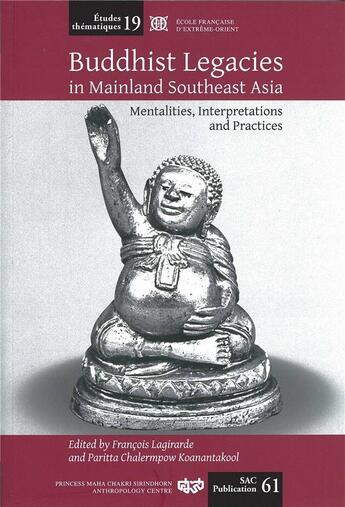Résumé:
Buddhist legacies
in Mainland Southeast Asia
Buddhism as Heritage - religious heritage certainly, but also intellectual and cultural heritage - is the unifying theme of the present volume, written entirely by specialist on mainland Southeast Asia. However, the immensity of the task... Voir plus
Buddhist legacies
in Mainland Southeast Asia
Buddhism as Heritage - religious heritage certainly, but also intellectual and cultural heritage - is the unifying theme of the present volume, written entirely by specialist on mainland Southeast Asia. However, the immensity of the task inevitably means that the book cannot do more than open a horizon for our contemplation. The societies of peninsular southeast Asia are now so deeply permeated with Buddhist heritage that attempts at characterization are inevitably reductive. Beyond the texts, beyond the images, how can we touch the beliefs, the representations, the emotions? On the other hand, if we content ourselves with recording the immeasurable wealth of the legacy, if we are happy simply to traces its influence on every aspect of culture, its diffusion through every stratum of society, we will be unable to appreciate its specificity, nor its regional originality in contrast to the other parts of Asia equally imbued with Buddhist values. A tradition may appear natural to those who live within it, but its comprehension requires the scholar to go beyond its immediate expressions and show how it is constituted in particular contexts, how, through history, it has left its mark on knowledge and on institutions.
The apparent diversity of the contributions presented here should not obscure the common ground they share. All seek to challenge the compartmentalized perspective by which Southeast Asia is deemed the relevant frame of reference. The history of religion can disregard national frontiers more easily than political history and comparative approaches thus become indispensable: this understanding motivated the foundation of the EFEOes research group on Buddhism and of the international scientific network built up around it, whose work is partly reflected in this book.
Yves Goudineau.
Donner votre avis
















